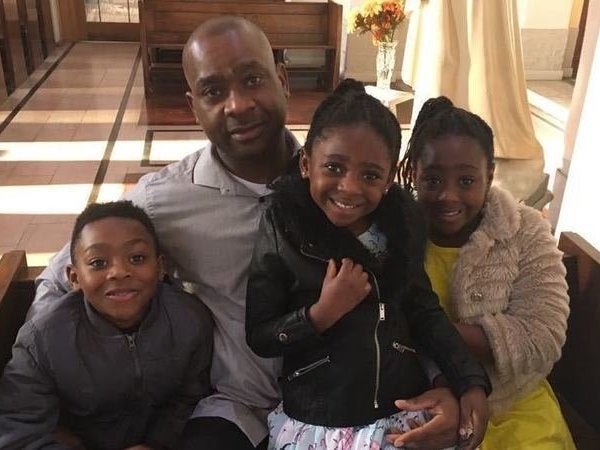Home Office separating scores of children from parents as part of immigration detention regime
Schools, NHS and social services write to Home Office begging for parents to be released from detention because of damaging impact on children

The Home Office is separating scores of children from their parents as part of its immigration detention regime – in some cases forcing them into care in breach of government policy.
Schools, the NHS and social services have written letters to the department begging them to release parents from detention because of the damaging impact it is having on their children.
Bail for Immigration Detainees (Bid), a charity that supports people in detention, said they have seen 170 children separated from their parents by the Home Office in the past year – and believes there are likely to be many more.
While usually the youngsters remain in the care of their other parent, the charity has seen a number of cases where children are taken into local authority care as a result of the detention.
Case workers highlight that this is in breach of Home Office guidelines, which state that a child “must not be separated from both adults if the consequence of that decision is that the child is taken into care”.
In one case, three young children were taken into care for several days after their dad was detained earlier this year – an experience that left them traumatised and fearful that he will be “taken away” again.
Kenneth Oranyendu, 46, was detained in March while his wife was abroad for her father’s funeral. Despite the Home Office being aware of this, they kept him in detention and his four young children were forced to go into care.
The Independent has seen letters to the Home Office from public bodies in which teachers, social workers and medical workers inform officials of the detrimental impact the detention of parents is having on their children.
One letter to the Home Office from a head teacher states that the detention of the father of two of the “most delightful and brightest” pupils in the school would impact “significantly” on their emotional wellbeing.
“It is incredibly upsetting for the girls to suddenly have their father removed from their life. This distress, to what was a happy life for these girls, will no doubt impact significantly on their emotional wellbeing,” the letter states.
“It is deeply saddening that a member of our school community who is very much liked and respected by both staff and parents has been treated in this manner, and whilst he may just be a number to you he is a friend to all of us.”
Another letter to the Home Office, from a social worker in Southwark, warns that if a man in detention is not released in time for the birth of his unborn child in three weeks’ time then the baby would have to go into care.
“If [name of detainee] is not released in time for the baby’s birth, the child will be accommodated in local authority care and care proceedings will be initiated to secure the long-term care planning arrangements for the child,” it states.
“This is understandably a situation Southwark Children’s Services wish to avoid to prevent family breakdown.”
A third letter, from an NHS trust in London, urges the Home Office to release the father of a one-year-old girl who is suffering a bleed in her brain, saying: “He has accompanied [her] to all health and therapy appointments.
“He has received training and has undertaken daily therapy activities with [her] which have been key to her development. Being deported would place the immediate family in a vulnerable situation.”
Nick Beales, a legal case worker at Bid, told The Independent he had seen three cases in the past 18 months where children were placed in care because their parent was detained.
“The Home Office knew how much damage is going to be done. We get letters from schools, and social services are pleading with them to release people,” he said.
“We regularly get reports from schools of children’s behaviour deteriorating, their school work suffering. We get reports from parents of children wetting the bed, letters from social services raising concerns about children’s conduct.
“The initial decision to detain someone is usually made with very little assessment of what’s actually going on. It’s ‘detain first, ask questions later’. Any new evidence submitted falls on deaf ears. All rationality goes out of the window.”
Maddy Evans of SOAS Detainee Support, a campaign group supporting immigration detainees, told The Independent the Home Office had been “tearing parents away from their children for years”.
“These families do not know if they will be reunited or separated forever. Needless to say, this causes unbearable distress to many detainees and their families,” she said.
“This punitive and heartless policy of family separation not only has a devastating impact on parents who are separated from their children, or left to parent alone, it has lifelong ramifications for the children involved.
“It is absolutely unconscionable to put political point scoring on immigration above a child’s right to the care and love of their parents.”
The Home Office did not provide a formal comment but said it did not separate children from both adults for immigration purposes if it means the child would be taken into care, unless there are “exceptional circumstances”.
Join our commenting forum
Join thought-provoking conversations, follow other Independent readers and see their replies
Comments
Bookmark popover
Removed from bookmarks